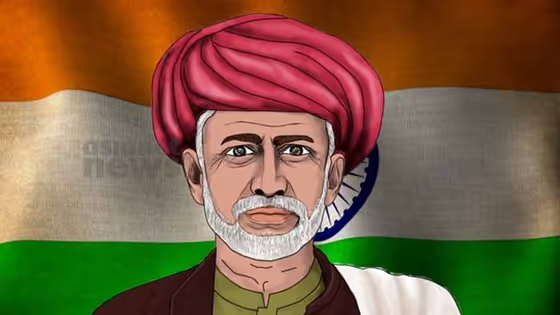
India@75: Mahatma Jyotiba Phule, the Father of Indian social revolution
Even those who supported the British rule in India have indirectly strengthened the Indian people's self-confidence and urge for freedom. The most unforgettable name among them is Mahatma Jyotiba Phule.
Even those who supported the British rule in India have indirectly strengthened the Indian people's self-confidence and urge for freedom. The most unforgettable name among them is Mahatma Jyotiba Phule.

Known as the father of the Indian social revolution, Phule was one of the earliest to work for the rights of backward communities. Baba Saheb Ambedkar, for whom Phule was the guiding light, called him India's greatest Shudra. Both Phule and his wife Savitribai were pioneers in the field of women's education. Phule, credited to have introduced the term Dalit, penned several books. Savitribai Phule was a well-known poet.
Phule was born in 1827 in Pune, Maharashtra, to the backward Mali community who grew vegetables and flowers. Jyotiba received Western education in the Scott Mission school, which shaped his views. He married Savitri when he was 13, and she was just nine years old.
A turning point in Jyotiba's life occurred when he attended his Brahmin friend's wedding. Jyothiba was insulted and harassed for participating in the wedding procession, citing his backward caste background. This experience made Jyotiba aware of the caste system's gross injustices.
Jyotiba's visit to a girls' school run by Christian Missionaries opened his world further. Reading the Rights of Man, the classic by the American author Thomas Paine on equality, took him by storm. His first step was to teach his illiterate wife, Savitri, to read and write. Following this, Phule and Savitri set themselves to work for women's education. They founded the first girls' school at Vishrambag Wada, Pune, and faced great hostility from orthodox sections.
Phule's father asked him and Savitri to leave the house for breaking Manu's Code that proscribed education for women. Phule's Muslim friends gave him asylum, and they carried forward their mission.
They started schools for backward castes. They founded Satyashodhak Samaj, which called for the eradication of untouchability. Phule and Savitri openly opposed child marriage and advocated widow remarriage. They opened orphanages for girl children who were abandoned by their families.
Like many backward caste leaders, Phule also thanked in his book Gulamgiri the British government and Christian Missionaries for not subscribing to the Hindu Caste System. He believed that western modernity was the only way for the backward castes to escape upper caste hegemony and advance through English education. Phule also penned a book on the Prophet Mohammed.
Setting a model for backward castes, Phule ran some businesses and was Pune's Municipal Commissioner for seven years from 1876. He passed away at 63 in Bombay in 1890. The bubonic plague epidemic hit Maharashtra at the end of the 19th century.
Savithribai and her adopted son Yeshvant opened a clinic for the victims. What awaited her was a heroic death after she carried a backward caste baby affected by plague in her hands and fell eventually by the disease at the age of 66 on 10 March 1897.